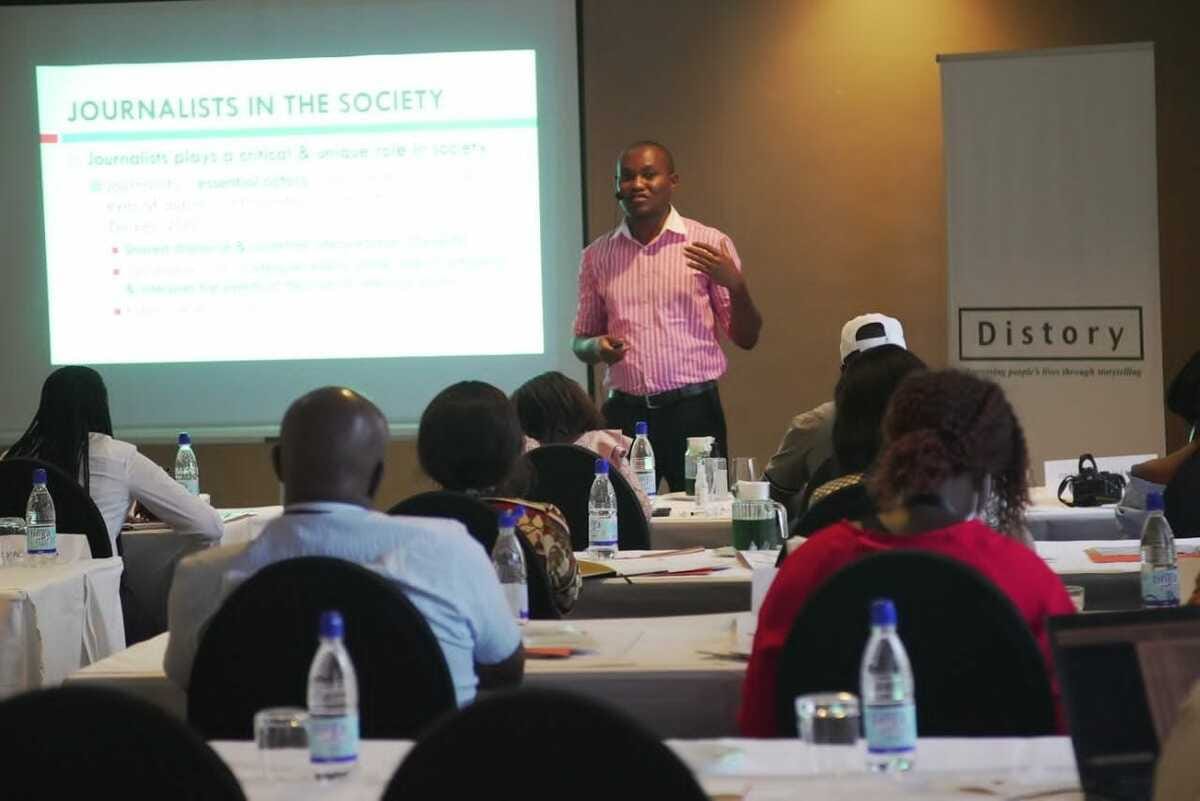
A Kenyan-based media trainer and scholar has called upon African journalists to look at Artificial Intelligence as a complement to their storytelling work than a threat to their professional survival.
Dr Benjamin Muindi said this today in Harare, Zimbabwe, where over thirty journalists from different countries in southern Africa are attending a week-long environmental journalism in the modern age training, organized by the African Wildlife Foundation in conjunction with Distory Communications a media organization from Kenya.
“You know, the whole idea of telling stories will become better, more new robust perspectives will emerge because of AI. There are fears people have expressed about job losses but any technological disruption is always bound to bring inevitable losses,” he said.
“We have seen it not just with AI, but even in previous disruptions that are not even tech-based viability of advertising as a form business model has been challenged before and people lost their jobs. At the same time, AI is said to increase work efficiency.”
Artificial Intelligence is the theory and development of computer systems that can perform tasks normally requiring human intelligence.
Muindi said designing such a program requires commitments about what knowledge is and how it is obtained.
“AI has been able to do tasks at different levels just like a human being, sometimes more efficiently,” said Muindi.
Muindi said one characteristic of narrow AI is that it can only undertake one task while journalism requires some form of creativity and this means that generating new ideas should be the norm rather than the exception.
"AI can enable communication as never before, but it also brings new challenges for learning and accountability. Convergence plays a major role in technological advancement,” said Muindi.
Meanwhile, the media scholar called on journalists to be flexible on how they package their messages for their audience, saying what might be seen as trivial might be the crowd puller.
“An audience survey in Kenya, for example, shows that 88 percent of people enjoy looking at jokes online, 55 percent news, 32 percent health issues, and 30 percent spiritual health” added Muindi.
Currently, statistics show that 5.1 billion people worldwide are Internet users, with Asia and Africa having millions of youths between 15 and 24.
African Wildlife Foundation Zimbabwe Country Director Olivia Mufute who launched the workshop noted that the media engagement is meant to cultivate the authentic African voice through storytelling.